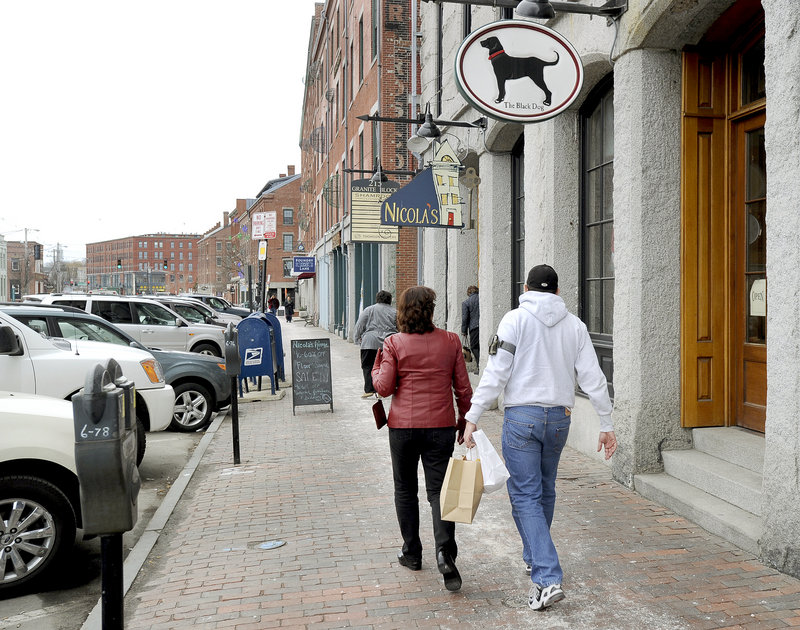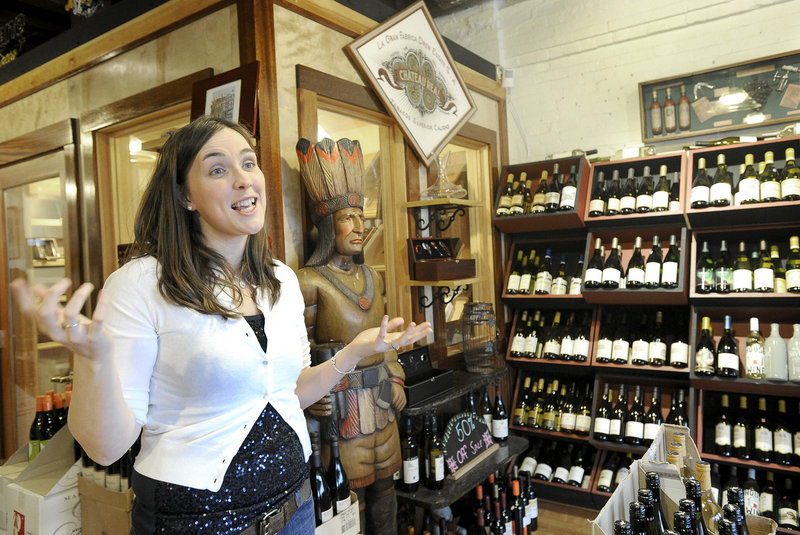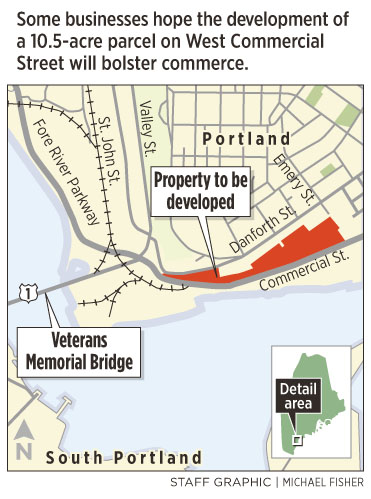PORTLAND — Business on Commercial Street has exceeded David Hodgkins’ expectations.
His three clothing stores are lined up next to one another at the intersection of Commercial and Union streets. He opened Portland Dry Goods Co. and Barbour by David Wood in 2008. In July, he moved David Wood from the space it had occupied at Market and Middle streets for 25 years.
“This is like a magnet down here,” Hodgkins said.
In the real estate market, Commercial Street, with its mix of boutiques, restaurants, offices and waterfront businesses, is outperforming other parts of Portland.
At the end of 2011, Commercial Street had an 8 percent vacancy rate for office space and almost no available retail space, according to a survey by Malone Commercial Brokers.
By comparison, the office space vacancy rate was 13 percent for the Old Port and 16.5 percent for downtown Portland overall.
It’s the first time the firm has broken down numbers for the three areas, said Jim Harden, one of the survey’s authors. The numbers quantify what the firm sensed: that the waterfront, the views and the bustle of Commercial Street are drawing tenants.
Erin Hadwen, manager of the Old Port Wine Merchants and Cigar Shoppe, is glad the store moved from Fore Street to Commercial Street in 2009. She said the move increased the shop’s tourist traffic and drew local customers who hadn’t been aware of it in the previous location.
Business improved so much that four people, rather than two, now work in the shop.
“We just can’t say enough good stuff about Commercial Street,” said Hadwen, whose job titles are manager and “wine goddess.”
Commercial Street evolved in the 1980s as businesses like produce and meat wholesalers and plumbing and heating companies vacated their buildings, said Tom Dunham of the Dunham Group, a commercial real estate brokerage in Portland.
Those businesses went to locations that offered consolidation on a single floor, better truck access and proximity to the Maine Turnpike, he said. Their moves made redevelopment possible on Commercial Street.
Business people on Commercial Street are hopeful that recent developments will boost business even further.
In October, Pierce Atwood moved its 100 lawyers and their staffers from Monument Square to the former Cumberland Cold Storage building on the waterfront. The firm’s move was only a matter of several city blocks, but it made a big difference for neighboring businesses on Commercial Street.
Hodgkins said he has long had regular customers who work at Pierce Atwood. Now, he’s picking up business from lawyers from elsewhere in New England who visit the firm.
The Old Port Wine Merchants and Cigar Shoppe and the Salt Exchange restaurant also saw more business with the law firm’s arrival.
This week, the City Council approved a zoning change to allow development of a vacant 10.5-acre parcel on Commercial Street, west of the Casco Bay Bridge.
J.B. Brown & Sons sought the change from an industrial, water-dependent zone to one that allows residential, business and retail uses. The parcel is next to the Star Match Co. building, which the developer has owned since 1974.
Vin Veroneau, the company’s president, sees the rezoned parcel as an extension of the Star Match Co. area, a visible site that is close to downtown but easily accessible from Interstate 295. He expects the accessibility from the highway to get even better with the completion of the new Veterans Memorial Bridge.
While Veroneau sees the project as self-contained, others hope development in the area could help to extend the pedestrian-oriented portion of Commercial Street westward.
“The more you can push out the borders — the boundaries — the stronger the middle will get,” Hodgkins said.
Charlie Bryon, owner of the Salt Exchange, can envision an extension of the business district that reaches nearly to the Veterans Memorial Bridge. West Commercial Street would have to be more pedestrian-friendly than it is now, with good signage and a marketing plan.
Bryon can imagine a nationally known retailer serving as a draw, condominiums and perhaps an extension of the Narrow Gauge Railroad from the East End — all coexisting with the working waterfront. The nearby Fore River and open space would make an attractive scene.
“I would go all the way down. It’s a beautiful approach,” he said.
Staff Writer Ann S. Kim can be contacted at 791-6383 or at:
akim@pressherald.com
Send questions/comments to the editors.






Comments are no longer available on this story